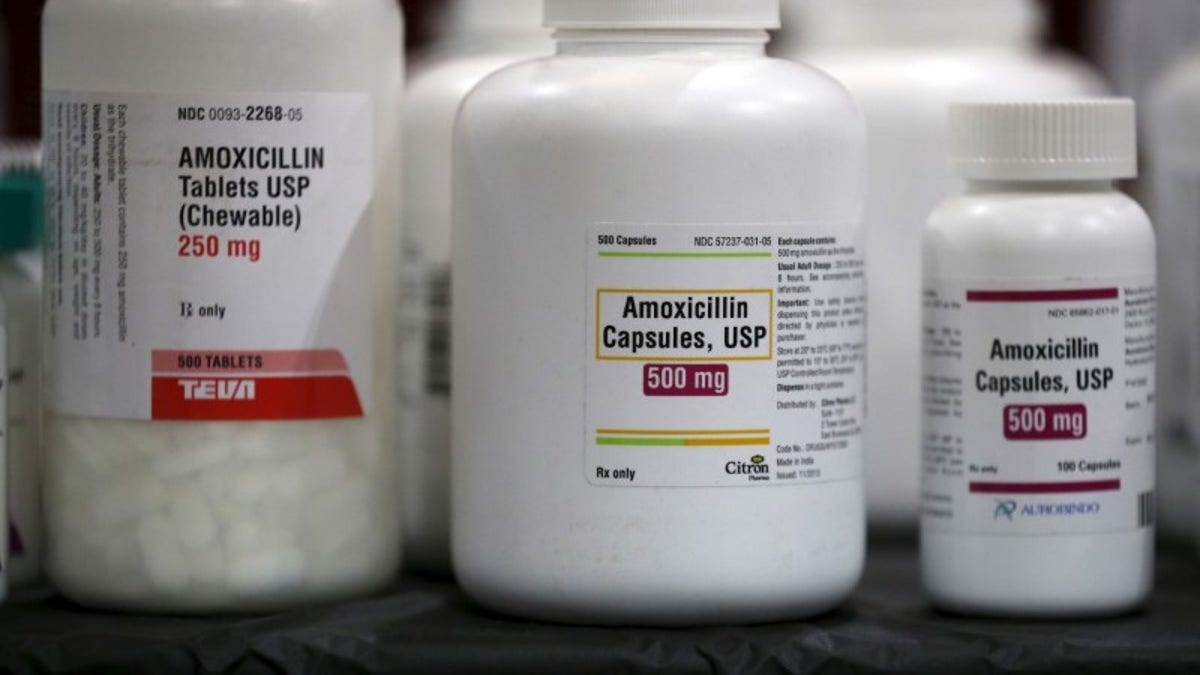
Amoxicillin penicillin antibiotics are seen in the pharmacy at a free medical and dental health clinic in Los Angeles (Reuters)
LOS ANGELES – U.S. sales and distribution of antibiotics approved for use in food-producing animals increased 1 percent from 2014 to 2015, the U.S. Food and Drug Administration said in a report on Thursday.
The report comes as scientists warn that regular use of antibiotics to promote growth and prevent illness in healthy farm animals contributes to the rise of dangerous, antibiotic-resistant "superbug" infections, which kill at least 23,000 Americans each year and pose a significant threat to global health.
An estimated 70 percent of antibiotics used to fight human infections and to ensure the safety of surgery and other invasive procedures are sold in the United States for use in meat production.
In 2015, sales and distribution of those medically important antibiotics for food production rose 2 percent, FDA said.
Medically important antimicrobials accounted for 62 percent of the domestic sales of all antimicrobials approved for use in farm animals in 2015. Tetracyclines accounted for 71 percent of such sales, FDA said.
"The more we use them anywhere, the less effective they become," said David Wallinga, a medical doctor and senior health officer at the Natural Resources Defense Council.
"Against the backdrop of a crisis in now untreatable or nearly untreatable infections, this report further underscores how urgently we need more and stronger government action to address the ongoing overuse of the drugs in livestock," Wallinga said.
McDonald's USA and some other chains have switched to serving chicken raised without antibiotics important to human health. Some investors are pushing McDonald's and other major food companies to do the same for all of the meat they produce, purchase or serve around the world.
